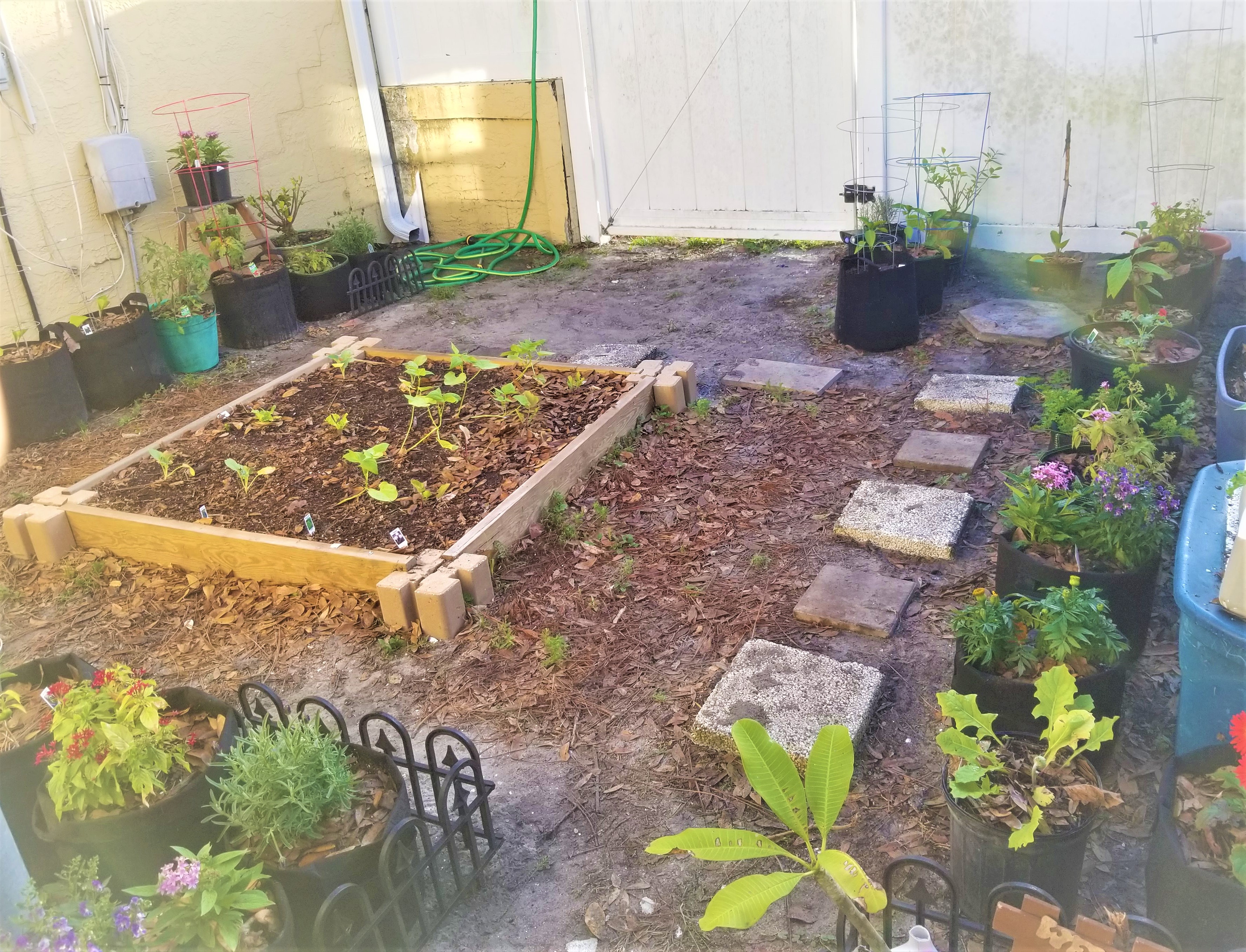Do you love what you do? Do you struggle waking up every Monday morning? Can you imagine doing it for the next 3 to 4 decades of your life? Have you ever thought about when you could stop? Do you want to do something else? Or do the same work, not for the paycheck but because you love to?
Knowing our FI number from our previous post today, I think about…
When can I retire?
View on Retirement
My parents had worked for the same company for more than three decades. It is the same company where they had met. It was and still is an excellent company, and my dad always said that being employed there is like leaning against a sturdy wall. They had good benefits, and their loyalty was always rewarded.
I’m unsure if they loved it, but I know they are good at their work. By the admiration of their co-workers/friends, who saw how dedicated they were. Several factors could be, but this dedication might have affected their health.


According to discovernet.io, the average retirement age for Americans is 66, up from 60 years old in the 1990s. My parents retired a few years earlier than this, but they closed.
On the same site, it said that when 18- to 19-year-olds were interviewed about retirement, they expressed optimism that they could retire early. However, once they hit 30, this optimism wanes upon recognizing the realities of working and adult life. Now, I am at a point in my life when I consider our retirement and face the same uncertainty.
When can I retire?
On knowing the amount of money we need for retirement (FI number), we became curious. We wanted to know how long we must work to reach this number. I found a straightforward formula that would do just that:
Years to Financial Independence = (Financial Independence number – Net Worth)/ Annual Savings
FI number from the previous article: $2,085,000
Net Worth: What it is and what it is not
To know your FI timeline, the following number we need to know is your Net Worth. This is simply all your Assets minus all your Liabilities.
Remember that Income is not Net worth. So it does not matter if you earn $200,000 a year; if you spend all of it, your Net worth would still be $0.
Net Worth = Assets – Liabilities
Assets
These are your engines, the accounts, investments, and properties you own that earn you future money and can be converted to cash. This includes money in your bank accounts, retirement savings, and personal property that you can sell.
When I started working, I always thought all the money in my checking account was my Net worth. However, it was lost to me that this is just half of the equation.



In 2019, my wife and I each had checking and savings accounts. I had just started contributing to our company 401k. I also have a ROTH IRA account and a taxable investment account by Wealthfront.
Get your first $5000 managed for free at Wealthfront by clicking here.
- $23,179.13 Taxable Account
- $22,852.98 Roth IRA
- $2399.17 401K
- $5270.03 Checking
- $1000.24 Savings
- $54,701.55 Asset Total
Liabilities
These are your anchors, everything you owe and must pay. They increase other people’s net worth but not yours.
One good piece of advice I luckily caught early is always pay my credit cards on time and in full. This way, I do not have to worry about paying crazy interest. As I built my credit score, I signed up for credit cards when I saw an excellent perk, but I never went crazy to rack up thousands of consumer debt.
We were traveling in 2019, we had family over, and we wanted to treat and show them around. There were flights, road trips, theme parks, tours, and dining that we expected to spend but did not plan for.
$8597.00 Combined Credit Card debt



Assets – Liabilities = Net Worth
$54,701.55 – $8597.00 = $46,104.55
We were thankful to be in a position where we had a positive net worth. For the least, we do not have to start paying off debt first just to get to a $0 net worth. Instead, we can plan to save right away towards our retirement.
Then again, it was surprising to know that while I had been working as a physical therapist in the U.S. for 4 years and my wife for 2 years, we only had $46,104.55 between the 2 of us.
We do not have the Income of orthopedic surgeons, but knowing that the median income for home health PTs is $92,875, where did all the money go? I thought about all the time we put in at work, driving around in all kinds of weather, and staying up later to do our charts.
How much more of this can we do? Should we keep our heads down and work, hoping we get there? Are we being intentional with our money? Are we willing to spend more of our time away?
Annual Savings
This is the portion of your hard-earned check you pay your future self. It is the money you set aside in your savings accounts for a rainy day. Also, your contribution to any Employer-Sponsored Savings plan (401k, 403b, SIMPLE, SEP), taxable investment accounts, and all different kinds of savings and retirement accounts (IRA, 457, HSA)
It was not that much, but I had savings. I set for a few dollars to automatically transfer to my savings accounts, Wealthfront IRA, and taxable accounts every pay period. I was also contributing 15% of my paycheck to my 401K. I placed barriers around my savings, so it is harder for me to spend them at will. So, it was not all that bad.
- ROTH IRA $500
- Taxable $1000
- 401K $1000
- Savings $2000
- Monthly $4500
- Annual $54,000
We ran all the numbers, hoping to get a number less than 20 years. We enjoy doing our jobs, but we cannot see ourselves doing them with the amount of intensity that we have now. We want to be happy and effective physical therapists to give our patients the treatment they deserve.
The Big Reveal
(Financial Independence number – Net Worth)/ Annual Savings
($2,085,000 – $46,104.55)/ $54,000 = 37 years
We looked at each other, mortified. This formula said that if we lived the same lifestyle, I would work until I was 69 and my wife was 64. Yes, it is about the average retirement age in the U.S. So, why were we shocked?
Imagine we would be the same age as the patients we see, probably complaining of the same aches and pains. Something had to change if we even wanted to have a shot at retiring early.
Changes
Unless we rob a bank or win the lottery, we cannot do anything about our net worth. It is what it is. But there are two more variables that we can modify in this formula.
- FI number
- Annual Savings
Can we live on less?
The FI number is not fixed; it changes with your chosen lifestyle. However, it can be modified by asking challenging yet very simple questions.
What do I want my life to be?
It requires you to look within to check if your values align with how you spend your money and time. Then, it forces you to ask another question.
Is it worth it?
What you are getting should be worth the money you are exchanging your time for. You must be awake enough to see that having everything is not the same as being fulfilled. That sometimes happiness does not come with a price tag.
At the beginning of 2020, we did ask ourselves these questions. I opened my spreadsheet, and we analyzed our spending patterns. We found out that we were not putting our money into our happiness. Putting our heads together, we came up with a plan.



The Plan
To only spend our money on the following:
- The primary living expenses (home, utilities, groceries)
- Healthy plant-based meals cooked at home
- Once weekly, visit vegan cafes
- Work-related expenses (gas, tolls, insurance)
- Art supplies – Mrs. Therafire
- Vegetable garden supplies – Mr. Therafire
- Gifts for our family
- Charity
Basic Living Expenses
We have the mortgage, utilities, and occasional repairs. So, aside from the obvious ways to decrease our bills, such as turning the lights off when leaving a room or using a cup when brushing our teeth, we wanted to be more creative and save more money.
We have 2 spare bedrooms and 1 bathroom for family and guests to stay over when they visit. Then the pandemic blew up in early 2020. We figured the room would remain empty due to travel bans. On the introduction of one of our friends, we came across biggerpockets.com, which eventually led us to House Hacking. This game changer turned our house from a money pit into a good passive income source. For more information on how we began house hacking, watch this video.
2019 expenses: $21,240
2020 goal: $0
Savings: $21,240
Food
We changed our diet to be intentional in what we put in our bodies, nothing more. We did not know that it would also have fantastic side effects on our finances.
We decided to follow a Whole Food Plant Based lifestyle for at least a month. For the next 30 days, we would only buy fruits and vegetables from local produce and get toiletries and other pantry items at Aldi (luckily, they are close to each other where we are). This is to avoid the temptation of getting the usual stuff when we go to the big box stores.
Our new lifestyle has cut down our choices of restaurants and cafes dramatically. This meant that if we craved something, we had to make a plant-based version at home, saving us a lot.



When you eat out, you are paying for not only the food but also the brand, the convenience, and the experience it brings. You are paying about 300% markup on every meal. We still budgeted a bit on eating out and taking out once a week to try out new vegan cafes that pop out occasionally.
2019 expenses: $12,000
2020 goal: $7,200
Savings: $4,800
Shopping
Reflect on what you want to have after fulfilling your basic needs. Is golf, vintage cars, or photography your thing? Go ahead and put this in your new budget. Do you want to travel, take guitar lessons, or party every weekend? Include them if they feel like you.
During this time, my wife wanted to try acrylic painting. So she took inventory of the things we already had and those we had to buy. We combed hobby stores for the supplies she needed (canvases, various acrylic paint, different kinds of brushes, etc.), and she was a happy camper… or painter.




On the other hand, I wanted to try gardening. So, I researched the specifics of growing each vegetable and how I wish my backyard garden to look. Some of the supplies I needed were growing soil, mulch, fertilizer, seeds, and starts. It could get pricey, but I wanted to learn how to grow our food. So, I allotted this in the budget as if it were expenses for gardening school.
2019 expenses: $7,560
2020 expenses: $3,600
Savings: $3,960
Travel
Although it was challenging to travel in 2020 (and it still is at the writing of this post), we did not want to give up on traveling in the future. It is something that is on the top of our list. Most of our retired clients advise us to do so while we are still young and we still have the energy to do it. If you hold it for too long, you just never know what is waiting for you at retirement.
We aim to plan for it ahead of time to prevent accumulating credit card debts for our travel expenses. We research likely destinations, the costs of living, and the time we travel. We started traveling in 2021 and detailed some information from the most recent travel in our earlier posts listed below.
Cusco Peru | Trial Retirement in Color
Oaxaca Mexico | A Budget-Friendly Quick Guide
Costa Rica | An Unexpected Trial Retirement Destination
Instead of paying for travel debt months after, we will be paying for it before in this strategy. Being intentional saves us money and allows us to spend freely on vacations.
2019 Expenses: $12,000
2020 Goal: $7,680
Savings: $4320
Gas and Insurance
Due to the nature of our work, we are always at the mercy of fluctuating gas prices. Unfortunately, we cannot do anything about it, so the budget would not change in this line item.
However, we can always shop around for auto insurance. A few weeks before our insurance expires, I would scour the internet for auto insurance quotes for the same type of coverage. We go with the best price and pay for 6 months. This way, we get better rates.
We never stay with the same insurance company for more than 6 months. Sometimes we just bounce back and forth between two or three companies, which is easier because they have our information. It is funny how this company works. They give better deals to new customers than loyal ones.
2019 Expenses: $6600
2020 Expenses: $6180
Savings: $420
Monthly Expenses Breakdown
| Expenses | 2019 Expenses | 2020 Goal |
| Rent | $1,250.00 | $0.00 |
| Power | $250.00 | $0.00 |
| Water | $75.00 | $0.00 |
| Streaming | $50.00 | $0.00 |
| Internet | $70.00 | $0.00 |
| Phone | $75.00 | $0.00 |
| Total | $1,770.00 | $0.00 |
| Groceries | $400.00 | $400.00 |
| Dining | $600.00 | $200.00 |
| Total | $1,000.00 | $600.00 |
| Shopping | $630.00 | $300.00 |
| Travel | $1,000.00 | $640.00 |
| Gas | $400.00 | $400.00 |
| Auto Insurance | $150.00 | $115.00 |
| Total | $550.00 | $515.00 |
| Insurance, Family & | $2,000.00 | $2,000.00 |
| Charity | ||
| Total Monthly | $ 6,950.00 | $4,055.00 |
| Total Year | $ 83,400.00 | $48,660.00 |
| *Therafire.com |
New and Improved FI number
Annual Expenses x 25
$48,660 x 25 = $1,216,500
If we followed our 2020 plan, our expenses would be about $30,000 less. By doing so, we would significantly reduce our FI number. Just by examining our spending patterns and asking what fulfills us, we would stop wasting money, and our precious time, on purchases that do not make us happy.
The Side Effect
The excellent side effect of lowering our monthly expenses is that we increased our savings. This opened more doors for us to improve our wealth by acquiring real estate, equity investments, etc. We discuss our monthly goals to find a more efficient allocation for our savings. But this would not have been possible without saving, so saving is the first thing.
2019 Savings + Additional Savings = 2020 Savings Goal
$54,000 + $34,740 = $88,740
Boost your savings more by trying our Top 7 Ideas to Save money!
New Retirement Timeline
FI Number – Net Worth / Annual Savings
($1,216,500 – $46,104.55) / $88,740 = 13 years
At this rate, we can retire in our 40s instead of way past our 60s. It was a relief to see this and to know that there was a much closer end. Indeed, we may continue to work once we achieve financial independence, but it would not be for the paycheck.
We hope that when this time comes, we find ourselves occupied in endeavors that give us great fulfillment. It is not about who retires the earliest but the hours we earn to do the things we want to do with the people we love the most.





What does make you happy? What are you willing to give up to earn back your time? When are you going to start your journey? How far along are you?
About Us
We are a Pinoy Physical Therapist duo living somewhat unconventional but intentional lives. Trying to be smarter and better than before, we surround ourselves with content, experiences, and people that help us discover practical yet powerful ways to achieve our goals.
We aim to be financially independent by making small changes to our lives. We invite you to join our journey! We hope that you learn something valuable from our experiences.
Follow us on YouTube for more money and travel tips! Please comment below or visit our Facebook page with questions or suggestions. See you soon!
DISCLAIMER
We are NOT certified financial advisors, analysts, or CPAs. Investing strategies shared in this article and the website are not financial advice but our opinions for educational purposes only. We want you to treat our content as a preview to do your research so you can make intelligent financial decisions.

Excellent breakdown and goal setting! Another factor I consider is that my investments will grow as I save, so that may help you reach your goal sooner depending on how the markets perform over that 13 year period. Good luck working towards your goals, the work will be well worth the freedom!
LikeLike
That is why for us, the first thing is to save. More opportunities for growth awaits us when we do. Appreciate your words of encouragement very much!
LikeLike
You did a good job on your goal plan for retirement but there are some variables not accounted for such as children in the future with expected and unforeseen expenses related to that. Not to worry though, with your budget and percentage going to your retirement savings, you’ll do just fine because overtime the amount could multiply with dividends and interests as long as you invest them wisely,
LikeLike
I agree and our number has changed multiple times since because of other expenses. When our family grows and we face the unexpected we will update the number to suit our needs.
Thank you for the feedback and kind words!
LikeLike